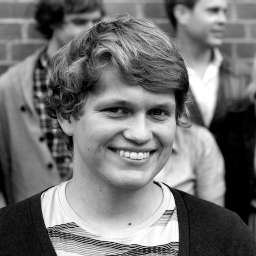Trapped in a seemingly everlasting wedding dinner, director Ole Anders Tandberg’s production of Monteverdi’s Il ritorni d’Ulisse in patria, straddles the line between irreverent puerility and deep, intensely human tragedy in expert fashion. Coupled with wonderful singing and unexpected musical additions, it makes for a highly enjoyable evening.
The story of Il ritorno d’Ulisse is taken from the second half of Homer’s Odyssey, where Ulysses, king of Ithaca, returns to his kingdom after twenty years, only to discover that his queen, Penelope, is being courted by three suitors. Tandberg moves the action from ancient Ithaca to a run-down church hall, in the middle of a wedding dinner, a dinner that has seemingly been going on for the past twenty years, as if Ulysses left his Penelope mid-entrée to sack Troy. Left behind are Penelope and the rest of the wedding party – what remains of it, in any case – with little else to do but sit and stare blankly into thin air and occasionally eat. In the background, supplying an endless stream of hot dogs, beer and pyrotechnics, are the gods, dressed up as waiters for the occasion, with rather fetching white and burgundy wings.
Tandberg’s production is one of extremes, often going from pared-down desperation to the downright absurd in mere moments (a three-legged dance routine to the tune of Monteverdi’s Zefiro torna, anyone?), yet its most important characteristic is its humanity. Penelope is no staunch tragedienne, however much she wants to be, but a human, vulnerable to the advances of the three suitors, slowly giving up hope that Ulisse will ever come back. Still, it is perhaps tragedy that shows the production at its strongest. With all the over-the-top antics that crowd the opera, the moments where characters can lament their cruel fates stand out even stronger.
The orchestra, put together of outside musicians and the opera orchestra, gave an engaging performance, led by conductor Alessandro De Marchi. In addition to Il ritorno d’Ulisse itself, there were several other musical numbers interspersed throughout the opera. The overture was a 12-part sonata by Cavalli, starting softly and gradually rising in intensity, before going straight into the prologue and the pained cries of Human Frailty. The production also included two other musical additions, the aforementioned Zefiro torna (the duet, not the madrigal) and a wonderfully jazzy rendition of Monteverdi’s madrigal Il lamento della ninfa. Especially the latter worked wonderfully well as a comment on the action, an aside sung by the gods and the shepherd Eumaio.
Vocally, the production was surprisingly strong. With the exception of the roles of Penelope and Ulisse, all the singers were making their role debuts. As Penelope, Christine Rice had superb command over the music and text, even though the role did seem to lie just a touch too low for her. As Ulisse, Krešimir Špicer gave an athletic performance, in every sense of the word, including a wrestling match, singlet and all. His opening scene was one of searing intensity, but a more comic side soon appeared, when he disguised himself as a beggar. His switching between the roles of tragic hero and comic stock character was nothing short of impressive. As their son Telemaco, David Hansen impressed as a moody teenager, with beautiful tone and hair taken straight from the lead singer of a 90s grunge band. Hagen Matzeit impressed in the prologue as Human Frailty, lamenting the mortality of Man, yet slid convincingly into more comedic territory as Pisandro, one of Penelope’s suitors.
The gods gave equally impressive performances, Andrew Harris a booming Time and Neptune, nicely contrasted with Halvor Melien’s elegant, yet commanding Jove. Kari Ulfsnes Kleiven was sweet-voiced as Cupid and Juno, even though her best singing was as the titular nymph in Il lamento della ninfa. As Fortuna and Minerva, Ann-Beth Solvang impressed with both her singing and her scene-stealing comic acting. Still, in terms of acting, the most interesting performance was that of Hallvar Djupvik, giving a sensitive portrayal of the shepherd Eumaio, here transformed into an autistic man. This Eumaio is content to lay under the table and play with his animal figurines, and yet is unwillingly dragged into the action around him.
Ole Anders Tandberg’s production Il ritorno d’Ulisse offers a new, often irreverent look at Monteverdi’s opera. With carefully realised characters, engaging acting and a pervading sense of fun, it makes for an excellent evening.




